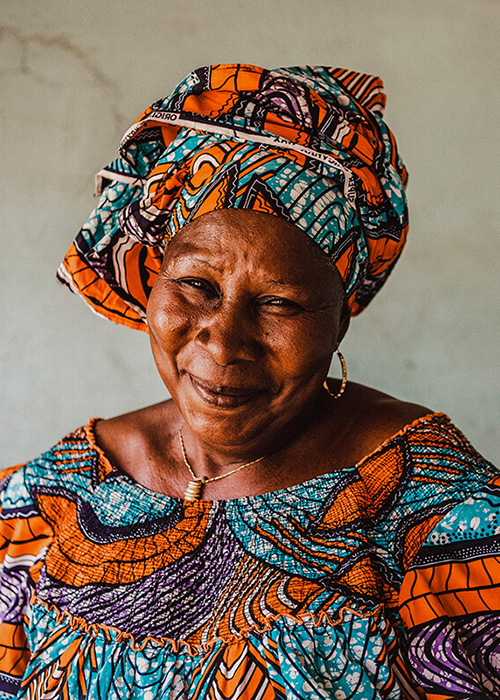
“Today, the midwives at the health center are saving lives.”
“We were convinced that medical personnel were responsible for the transmission of the Ebola virus. But even before that, most of us had never set foot in a health center. We were confident in what we had always been used to doing: treating ourselves with plants. If it had always been like that, why change?” said Rosina, a villager from Kolla.
In 2013, the Ebola virus surfaced the mistrust that many people already felt toward Guinean health institutions. Fear spread as fast as the disease, with families hiding infected family members in their homes. The epidemic had become uncontrollable.
Since 2017, the project “Citizen Participation in Health Governance,” funded by the United States Agency for International Development (USAID) and implemented by Search for Common Ground (Search) and Family Health International (FHI 360), has been tackling this crisis of trust between the population and conventional health structures.
In Kolla, mistrust and lack of information have led to the deaths of many women. Rosina recalled that, until recently, all women gave birth at home: “The only remedies available were mixtures of bark and root. In case of complications, the young woman and her newborn often died.” Two kilometers from the village, the health center is equipped with a delivery room, but unfortunately, specialized staff do not receive any patients.
Combining entertainment and knowledge-sharing, Search's team traveled to villages to run a participatory theater. The activity stimulated behavioral change and encouraged community involvement in health issues. Onstage, the actors used the villagers' real-life experiences and invited them to adapt, change, or correct problems presented in the play. Rosina, sitting between two other women, remembered and smiled: “The plays were funny and easy to understand. We learned by laughing.”
The first performance dealt with the theme of health during pregnancy. Onstage, actors represented everyone from pregnant women to families to medical staff.
“We have become aware of the need for pregnancy monitoring and essential care during childbirth,” Rosina said. “Today, the midwives at the health center are saving lives.”
Although the actors have left, Rosina continues the health awareness work with the young girls of the village. However, her teachings now go beyond those handed down by her ancestors: “Just as my mother taught me to recognize plants, I share what I have learned through theater. It is my role to bring women together and share the knowledge that will keep the younger generation healthy and give birth to beautiful babies.”